windows
Saints Row 2
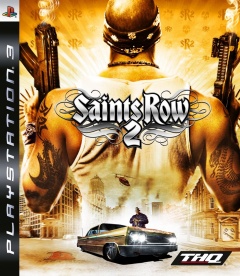 Without Rockstar Games and Grand Theft Auto III, we wouldn’t have Sleeping Dogs, The Saboteur, and possibly dozens of other series, including Saints Row. But whereas Grand Theft Auto IV upped the realism to aggravating levels (managing relationships and awful driving are the worst offenders), Saints Row has descended further and further into insanity, basically delivering the same sandbox joy that GTA III, Vice City, and San Andreas were known for.
Without Rockstar Games and Grand Theft Auto III, we wouldn’t have Sleeping Dogs, The Saboteur, and possibly dozens of other series, including Saints Row. But whereas Grand Theft Auto IV upped the realism to aggravating levels (managing relationships and awful driving are the worst offenders), Saints Row has descended further and further into insanity, basically delivering the same sandbox joy that GTA III, Vice City, and San Andreas were known for.
I’ve never played the original Saints Row, and while Saints Row 2 seems to continue directly off from the first game, I’m guessing I’ll be able to jump into the gangster-filled world with ease. I’ve heard tons of great things about the third game recently, but the second one flew under my radar, so I’m not exactly sure what to expect.
Here’s the first hour of Saints Row 2 for the PlayStation 3.
Bastion
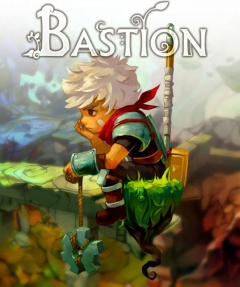 Bastion made a huge splash last year when it was released on Xbox Live Arcade and Steam, reaping excellent critical reviews and huge sales, especially for an indie game. Developed by Supergiant Games and published by Warner Bros., the game’s iconic narrator and haunting soundtrack have cemented its place as one of the cornerstone independent games of this decade.
Bastion made a huge splash last year when it was released on Xbox Live Arcade and Steam, reaping excellent critical reviews and huge sales, especially for an indie game. Developed by Supergiant Games and published by Warner Bros., the game’s iconic narrator and haunting soundtrack have cemented its place as one of the cornerstone independent games of this decade.
I was impressed by its first hour last November, but reading my thoughts on Bastion’s start indicates a trend that would hold throughout the game: while the art, music, and voice acting is stellar, the gameplay is just sort of there. It’s solid, but didn’t stand out amongst the great presentation.
It took a few months and many, many games, but I returned to Bastion, restarted my adventure, and finished the game in a half-dozen sittings. Here’s my review of Bastion for the PC.
Resonance
 I’ve been spoiled this year having just been introduced to the Blackwell series and publisher Wadjet Eye Games. Before Resonance, I bought four Blackwell games, Gemini Rue, and The Shivah. Point and click adventure gaming was one of my earliest gaming passions, but I ended up almost completely ignoring the genre for the last 12 years. Now it’s a passion again, and all courtesy of one publisher.
I’ve been spoiled this year having just been introduced to the Blackwell series and publisher Wadjet Eye Games. Before Resonance, I bought four Blackwell games, Gemini Rue, and The Shivah. Point and click adventure gaming was one of my earliest gaming passions, but I ended up almost completely ignoring the genre for the last 12 years. Now it’s a passion again, and all courtesy of one publisher.
Developed by Vince Twelve and published by Wadjet Eye Games, Resonance is a multi-character point and click adventure game featuring an engrossing story, unique interface, and thankfully, basically free of all the crappy genre trappings that pushed me away from games like this. It was one of the few games I allowed myself to hype up a bit this year, and the developers delivered.
If Resonance looks interesting to you, definitely check it out, it’s only $10 on Steam. Then play all the Blackwell games which can be grabbed in a four pack for $20. Not a bad deal at all. The best part about these games is that they were made in the free to use Adventure Games Studio, I’m scared to think about all the other awesome games out there that were made with this tool that I’m missing.
Here’s my spoiler free review of Resonance.
Gemini Rue
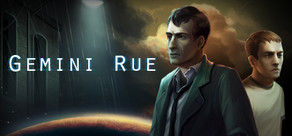 Gemini Rue. Duality + regret. A remarkably thoughtful and fitting name for this game (and certainly much more pleasing than the original Boryokudan Rue). Another entry in the monstrous Wadjet Eye Games adventure lineup and
primarily the child of Joshua Nuernberger, Gemini Rue has been very well
received since its release in early 2011. The game takes place in a futuristic sci-fi world with some touches of cyberpunk thrown in. As with other recent Wadjet games, it is a full experience complete with voice acting and attempts to push the underlying Adventure Game Studio engine as far as it can. As a whole, their efforts greatly pay off, riding on the strength of the characters and overarching story.
Gemini Rue. Duality + regret. A remarkably thoughtful and fitting name for this game (and certainly much more pleasing than the original Boryokudan Rue). Another entry in the monstrous Wadjet Eye Games adventure lineup and
primarily the child of Joshua Nuernberger, Gemini Rue has been very well
received since its release in early 2011. The game takes place in a futuristic sci-fi world with some touches of cyberpunk thrown in. As with other recent Wadjet games, it is a full experience complete with voice acting and attempts to push the underlying Adventure Game Studio engine as far as it can. As a whole, their efforts greatly pay off, riding on the strength of the characters and overarching story.
Bit.Trip Runner
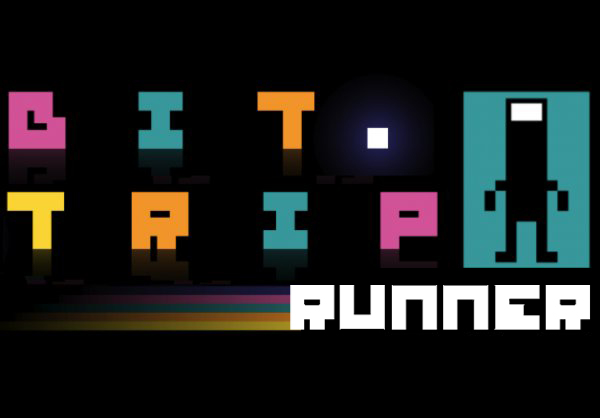 VVVVVV and NightSky both featured great musical soundtracks to back their platforming efforts, but Bit.Trip Runner is essentially a rhythm game with the platforms serving the soundtrack. Developed by Gaijin Games and released on WiiWare in 2010 and Windows in 2011, Bit.Trip Runner attempts to marry the sounds of Guitar Hero and the auto-running of Canabalt.
VVVVVV and NightSky both featured great musical soundtracks to back their platforming efforts, but Bit.Trip Runner is essentially a rhythm game with the platforms serving the soundtrack. Developed by Gaijin Games and released on WiiWare in 2010 and Windows in 2011, Bit.Trip Runner attempts to marry the sounds of Guitar Hero and the auto-running of Canabalt.
Nate originally reviewed Bit.Trip Runner last year and deemed it the “anti-rhythm game”, he awarded it an average score and went on to call it stressful. Steve chimed in in the comments section a few months ago and agreed with Nate’s assessment, but for whatever reason, I decided to play it myself.
I didn’t actually beat Bit.Trip Runner, but I made it to the third to last level before finally giving up, so I feel like writing a “full” review is still legitimate, either way, full disclosure.
Warhammer 40,000: Space Marine
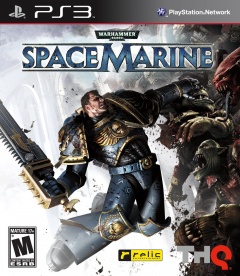 I find it kind of amazing that I grew up as a geek and never experienced any of the Warhammer 40,000 gaming culture. This is a tabletop game that has expanded far beyond the living room, including graphic novels, movies, books, and lots of video games.
I find it kind of amazing that I grew up as a geek and never experienced any of the Warhammer 40,000 gaming culture. This is a tabletop game that has expanded far beyond the living room, including graphic novels, movies, books, and lots of video games.
Released last September from Relic Entertainment, Warhammer 40,000: Space Marine stars one of the more popular aspects of the lore: Ultramarines. Super soldiers in huge armor that are seemingly unmatched on the battlefield. To the Warhammer ignorant, they may look like rip offs of the COG soldiers from Gears of War, which is a rather unfortunate comparison considering Warhammer has been around since 1987 and has undoubtedly inspired dozens of video game universes itself, including Gears.
So it’s time for me to take my first steps into the Warhammer 40,000 universe with Space Marine on the PlayStation 3. In one hour, I’ll know whether or not I want to stay any longer.
NightSky
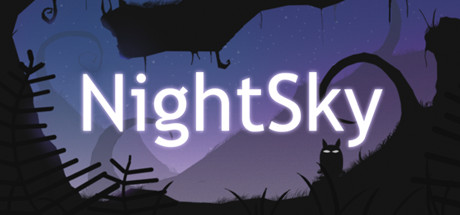 NightSky sells itself as an “ambient action-puzzle game”, which is an excellent description for this unique platformer. Most of the time you’re rolling a ball from the left to the right to reach the far side of the screen. Each level is typically three screens, with the third screen serving as a visual addendum to the previous puzzle. I’d like to say it’s a deceptively simple game, but there really isn’t much more to it than rolling a ball.
NightSky sells itself as an “ambient action-puzzle game”, which is an excellent description for this unique platformer. Most of the time you’re rolling a ball from the left to the right to reach the far side of the screen. Each level is typically three screens, with the third screen serving as a visual addendum to the previous puzzle. I’d like to say it’s a deceptively simple game, but there really isn’t much more to it than rolling a ball.
Outside of games like Eufloria and Dear Esther, few video games have delivered a truly relaxing experience. There’s very little urgency in NightSky with only a couple of timed puzzles, and if your ball rolls into the abyss, you’re simply plopped back to the beginning of the three screen set. You can save and quit at any time without losing progress, and there isn’t even really an acknowledgement that you beat the game. Everything is designed to elicit as little positive or negative emotions as possible, developer Nicklas Nygren would probably deem it a success if you instead drifted off to sleep in your chair.
Wizorb
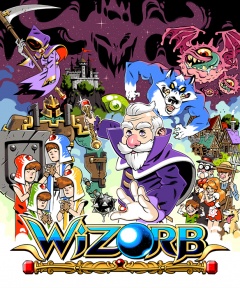 Breakout and Arkanoid and similar paddle games never resonated with me. Maybe because their Atari heyday ended before I started playing games, or maybe because I disliked the loose shot control. Whatever the case, the genre’s most polished and inspired entries still manage only a passing fancy.
Breakout and Arkanoid and similar paddle games never resonated with me. Maybe because their Atari heyday ended before I started playing games, or maybe because I disliked the loose shot control. Whatever the case, the genre’s most polished and inspired entries still manage only a passing fancy.
So I’m flummoxed by my lingering affinity for Wizorb, a three-dollar, three-hour curiosity. I completed the brief game in a weekend fling and have no real desire to revisit it, yet it’s still on my mind. I do relish the lively lo-fi style and RPG window dressing, but the game is still a pretty standard brick breaker at its core.
I’m not terribly impressed by this new appstore era, this flood of amateur developments selling for less than a vending machine lunch and rarely lasting as long. But Wizorb is one of the few $3 games that’s more filling than its price tag and play time imply. A few thoughtful little gameplay functions that address the genre’s weaknesses are what make it shine among its Breakout-clone peers and its bottom-dollar indie competition both.
VVVVVV
![]() I’ve been on an indie game kick this year, playing some really excellent platformer and adventure games. In a somewhat random string of events, I ended up playing three pretty different types of platformers over the course of a few weeks, and in preparation for our recent five year anniversary celebration, all full reviews were put on the back burner.
I’ve been on an indie game kick this year, playing some really excellent platformer and adventure games. In a somewhat random string of events, I ended up playing three pretty different types of platformers over the course of a few weeks, and in preparation for our recent five year anniversary celebration, all full reviews were put on the back burner.
The first of these three is VVVVVV, developed by Terry Cavanagh and released in early 2010, VVVVVV is a short but challenging open world platformer. Our hero, Captain Viridian, suffers some kind of accident to his spaceship and his crew is scattered across a new dimension. The controls are simple: all you can do is move left, right, and well, flip the gravity at your whim.
The next two platformers you’ll hear from me about are NightSky and Bit.Trip Runner, and while they’re all technically rather distinct, they can, after all, be boiled down to 2D platformers at the core.
Call of Duty: Modern Warfare 3
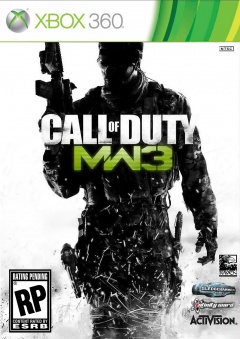 I’ve played a fair amount of video games in my life, and I’ve been playing shooters since I was five or six. This isn’t a challenge of “Yeah, well, I started when I was four!” Don’t start, that’s just annoying. My point is, I’ve been around the block a few times. Here’s a list of the shooters I played online regularly in chronological order: Quake, Team Fortress Classic, Unreal Tournament, Counter-Strike: Source, America’s Army, Battlefield: Bad Company 2.
I’ve played a fair amount of video games in my life, and I’ve been playing shooters since I was five or six. This isn’t a challenge of “Yeah, well, I started when I was four!” Don’t start, that’s just annoying. My point is, I’ve been around the block a few times. Here’s a list of the shooters I played online regularly in chronological order: Quake, Team Fortress Classic, Unreal Tournament, Counter-Strike: Source, America’s Army, Battlefield: Bad Company 2.
That’s really not that much, but it became impossible to keep up with the audiences. You want to play the most popular games (or at least popular games) so you actually have other people to play against, but once there was a new shooter coming out every freakin’ year, I just gave up.
Until one night, when my friend came into town for a visit and explained to me he had another copy of Call of Duty: Modern Warfare 3, and said it was mine if I wanted it. I thanked him and declined at first, but finally caved and accepted the offer. What the hell, it’s a free game, right?
